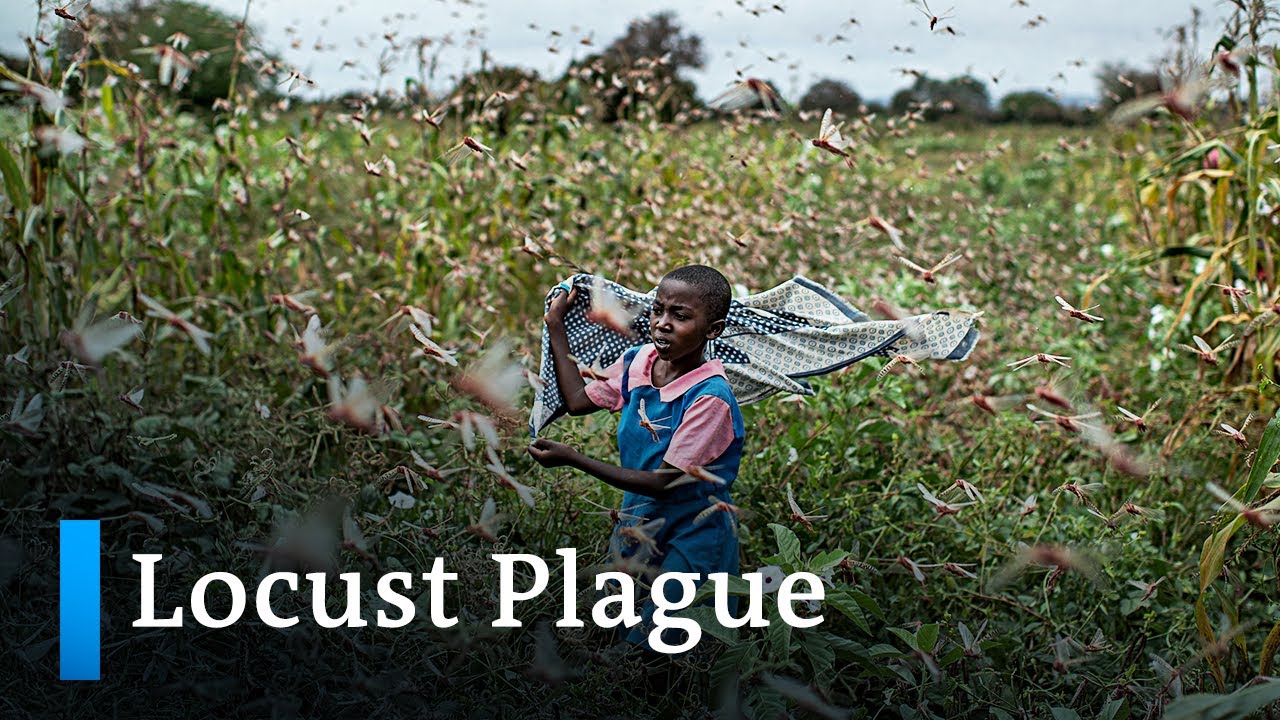Desert locusts are eating their way across large parts of east Africa in a swarm of enormous proportions. It is the worst locust outbreak some countries there have seen in 70 years. Researchers say they pose an unprecedented threat to food security in some of the world’s most vulnerable countries. Somalia, Ethiopia and Kenya are the worst affected, and Uganda is bracing for an invasion too.
Authorities have advised citizens to stock up on food as the insects approach the border with Kenya. The U.N. warns that locusts reproduce rapidly and, if left unchecked, their current numbers could grow 500 times by June, when the main cropping season gets under way. The United Nations has called for $76 million to help stop it from spreading.
Unusual weather patterns, including heavy rains since October, and general climate conditions are blamed for the spread of the desert locust swarms. Countries are beginning to spray with pesticides but the locust invasions may continue until June. Some countries, such as Somalia, are catching and eating the flying insects.
